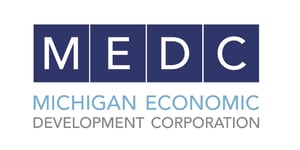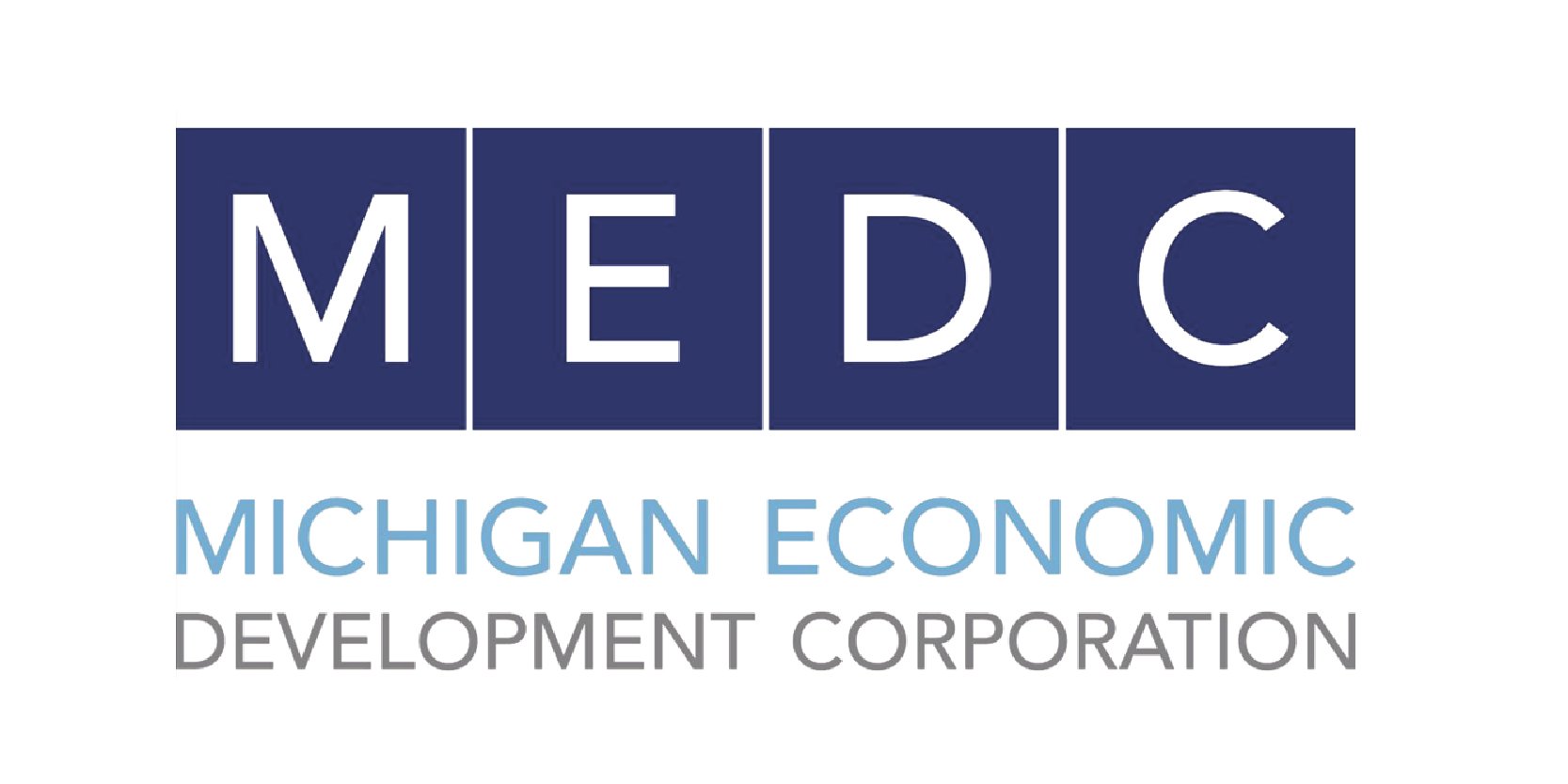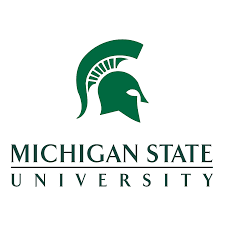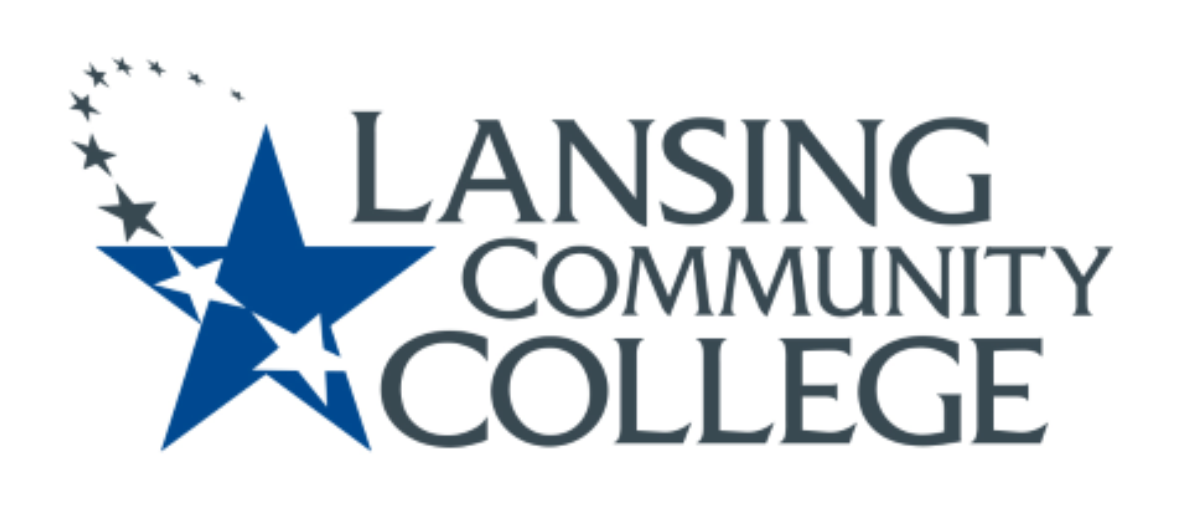
MEDC hails $3.6 million statewide partnership as largest investment in Michigan history to promote cutting-edge learning and high-paying, high-tech career opportunities in surging semiconductor industry with a focus on Greater Lansing students in underserved communities
EAST LANSING, Mich. — Leaders with the Michigan Economic Development Corp. (MEDC) announced today the largest investment in state history to expand semiconductor education and training programs in partnership with Michigan State University and Lansing Community College.
“Michigan is leading the way in supporting the growth and development of the semiconductor industry back in the United States,” Michigan Economic Development Corp. (MEDC) Executive Vice President and Chief Talent Solutions & Engagement Officer Kerry Ebersole Singh said during a morning news conference at Fraunhofer USA’s Center Midwest facility on the campus of Michigan State University in East Lansing.
Watch the press conference video here.
“The collaboration of Michigan State and Lansing Community College will provide an incredible foundation for students, employees, employers and entrepreneurs in communities across the capital-area region,” Ebersole Singh said. “It’s the first time in the history of the MEDC that we’ve made this large of a commitment to improve and expand semiconductor curriculum with Michigan’s higher education partners.”
MEDC is investing more than $3.6 million statewide in 2023 grants and matching funds with higher education institutions to promote semiconductor learning and career opportunities. That includes MEDC grants and matching funds that total more than $450,000 in the capital region, with $148,000 for MSU and $300,000 for LCC.
In addition, MEDC has directed grants and matching funds toward semiconductor education and training expansion efforts that include $1.1 million for Wayne State University, $838,000 for Michigan Technological University, more than $320,000 for Oakland University, over $140,000 for the University of Michigan and $150,000 for Washtenaw Community College.
MSU is using its MEDC grant to introduce early awareness about semiconductors among younger students, specifically senior middle school and freshmen high school students. MSU is creating a five-day summer camp built exclusively around semiconductor manufacturing and processing. This will be a residential summer camp program, targeting students in underserved regions in the Detroit area, and it will be completely free of cost.
“This is an amazing accomplishment we’re announcing today — our vision is for Michigan to be home of the leading educational institutions in America in semiconductor learning,” said MSU College of Engineering Dean Leo Kempel.
“With the $148,000 grant Michigan State has received from the MEDC, we are going to offer activities that Michigan State University has never been able to provide before that will promote career readiness and semiconductor industry awareness among Michigan middle and high school students,” Kempel said.
During the program, participating campers will receive transportation to and from campus, lodging in an MSU dorm and meals. The campers will each be assigned a residential supervisor and program coordinator. Michigan State University’s College of Engineering will design and deliver the instructional material for the camp. MSU’s employer partners include Hemlock Semiconductor, KLA, NXP and Infineon. MSU expects to launch the program during summer 2024.
“Currently, Fraunhofer USA offers MSU students a unique opportunity to apply their knowledge on industry and government projects aimed at societal improvements,” said President of Fraunhofer USA and Professor of Electrical and Computer Engineering at Michigan State University’s College of Engineering Thomas Schuelke.
“I am confident this new opportunity we are announcing will allow MSU and the Engineering School to support necessary learning opportunities for our Michigan students and future workforce for the Michigan semiconductor industry,” Schuelke said.
LCC is utilizing its MEDC grant of more than $260,000, combined with LCC’s matching grant of $40,000, to help support the college’s Job Training Center in the development and delivery of a 10-day Technician Quick Start Bootcamp.
The bootcamp will prepare job seekers for employment as entry-level semiconductor technicians. LCC intends to serve 60 participants throughout 2024. The program will be offered at no cost, to remove barriers to participation. An LCC-sponsored marketing campaign will increase awareness of and interest in the semiconductor industry and encourage participation.
Delivery will include in-person instruction, labs and out-of-class assignments. Evaluation will include hands-on labs, quizzes and successful completion of an industry-recognized certification test. During the program, LCC faculty will be trained to deliver the program in a portable/mobile format throughout the multicounty “SLICE” region — the acronym for Shiawassee, Livingston, Ingham, Clinton and Eaton counties — and perhaps beyond, contingent on demand and approval.
The populations served will include job seekers, unemployed/underemployed residents in the Greater Lansing area, low-income households, and immigrants and other underserved populations, as well as individuals unable to accommodate a traditional college schedule and tuition fees.
In its first year, the program will be offered in person at LCC’s Livingston County Center, with possible short-term delivery at its campuses in both downtown and West Lansing. LCC’s anticipated start date is March 2024, with a 15-person cohort each quarter throughout 2024.
Post-grant, the program will be institutionalized at LCC on campus and at various noncampus locations.
“Today’s announcement poses a win-win-win proposition for our state,” said Lansing Community College Job Training Center Director Lee Gardner.
“It’s a win for LCC, our current students as well as our future prospective students,” Gardner said. “It’s a win for the Greater Lansing area by providing more affordable opportunities to keep our talent close to home. And, it’s a win for the state of Michigan to demonstrate again that we are prioritizing second to none the growth of the semiconductor industry in Michigan.”
State Rep. Graham Filler, R-St. Johns, noted that his new district extends north to include a portion of Saginaw County where Hemlock Semiconductor is headquartered. Hemlock Semiconductor plays a key role in the semiconductor supply chain by manufacturing polysilicon, the foundational ingredient in microchips that are found in literally billions of electronic devices worldwide.
“Companies like Fraunhofer USA and Hemlock Semiconductor cannot sustain their momentum of success unless they can also secure the ready workforce that will help them continue to innovate and grow,” Filler said.
“The collaboration we are highlighting today is a linchpin of future success for companies like Fraunhofer USA and Hemlock Semiconductor,” he said. “This is a model for how we can all get on the same page and work together to achieve our shared goals.”
MEDC’s higher ed investments in the capital area are designed to provide accessible and industry-relevant training to equip students and workers with the knowledge and skills necessary to excel in these high-demand sectors. The target audience includes existing students in relevant degree pathways, adult learners seeking to change careers, current workers in need of semiconductor skills, underserved populations and high school students.
“The MEDC announcement today is just one example of the many ways we are working to ensure that the Michigan workforce has the skills necessary to transition to the technologies and industries of tomorrow,” said MEDC Higher Education Partnerships Director Avazeh Attari.
“The Great Lakes State has launched the largest-ever campaign in state history to promote careers, recruit talent and attract new businesses to fill jobs in Michigan’s thriving semiconductor industry,” said Attari.
###
About Michigan Economic Development Corporation (MEDC)
The Michigan Economic Development Corporation is the state’s marketing arm and lead advocate for business development, job awareness, and community development with a focus on growing Michigan’s economy. For more information on the MEDC and our initiatives, visit www.MichiganBusiness.org. For Pure Michigan® tourism information, your trip begins at www.michigan.org. Join the conversation on: Facebook Instagram LinkedIn, and Twitter.
Images courtesy of MED - CMEDC Senior Community Planner Pablo Majano and Munising City Manager Devin Olson















